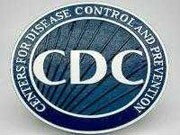 |
 |
 |

U.S. Reported 25,000 Cases of HPV-Related Cancers Annually
Most frequent tumor sites were cervix, head and neck, government study finds|
|
HealthDay
By Robert Preidt
Monday, November 3, 2008
 MONDAY, Nov. 3 (HealthDay News) -- An estimated 25,000 cases of cancers associated with human papillomavirus (HPV) occurred in 38 states and the District of Columbia between 1998 and 2003, U.S. officials reported Monday.
MONDAY, Nov. 3 (HealthDay News) -- An estimated 25,000 cases of cancers associated with human papillomavirus (HPV) occurred in 38 states and the District of Columbia between 1998 and 2003, U.S. officials reported Monday.
HPV is a group of viruses that includes more than 100 different types, more than 30 of which can be sexually transmitted. Most people with HPV infections don't develop symptoms or health problems, but some HPV types can cause cancer.
In its report, which covers the period before the HPV vaccine was available, the U.S. Centers for Disease Control and Prevention found that the most common sites for HPV-associated cancers were the cervix, head and neck, anus, vulva, penis and vagina.
HPV-associated cancers occur most often in the cervix -- about 10,800 per year. Black and Hispanic women had higher rates of cervical cancer than white and non-Hispanic women, the CDC said.
There were almost 7,400 HPV-associated head and neck cancers per year. These types of cancers increased 3 percent a year during the period examined in the study.
Among the other findings:
- There were more than 3,000 HPV-associated anal cancers per year; about 1,900 occurred in women and 1,100 in men. Whites had the highest rates among women, while blacks had the highest rates among men.
- There were 2,300 cases of HPV-associated vulvar cancer each year. White women had higher rates than black and Asian/Pacific Islander women.
- HPV-associated penile cancer was diagnosed in about 800 men a year. Hispanic men were more likely than non-Hispanic men to have this type of cancer.
- There were about 600 new HPV-associated vaginal cancers a year. Rates were higher among black women than white women, while Asian/ Pacific Islander women had the lowest rates.
- Women with a history of cervical cancer have an increased risk of developing subsequent non-invasive cancers of the vagina and vulva, as well as invasive cancers of the vagina, vulva and rectum.
The findings, which were published online, will be in the Nov. 15 supplement edition of the journal Cancer.
The report is the first analysis of the largest, most-comprehensive assessment of HPV-associated cancer data to date in the United States, the CDC said.
"These estimates of HPV-associated cancers were collected prior to the development of HPV vaccine. This gives us baseline data to measure the impact of HPV vaccine and cervical cancer screening programs in reducing the incidence of cervical cancer and other HPV-associated cancers and precancers," Dr. Mona Saraiya, medical officer in the CDC's Division of Cancer Prevention and Control, said in a news release.
HealthDay
Copyright (c) 2008 ScoutNews, LLC. All rights reserved.
Related News:
More News on this Date
Related MedlinePlus Pages:
| Home | Health Topics | Drugs & Supplements | Encyclopedia | Dictionary | News | Directories | Other Resources | |
| Disclaimers | Copyright | Privacy | Accessibility | Quality Guidelines U.S. National Library of Medicine, 8600 Rockville Pike, Bethesda, MD 20894 National Institutes of Health | Department of Health & Human Services |
Date last updated: 04 November 2008 |




